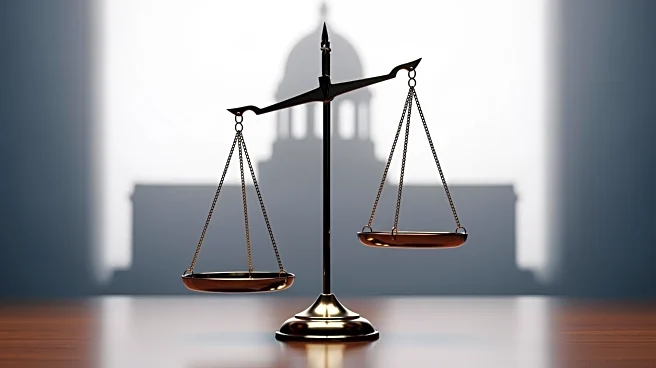What's Happening?
The Supreme Court is set to hear arguments regarding the legality of President Donald Trump's use of emergency powers to impose worldwide tariffs. Three lower courts have previously ruled against Trump's actions,
deeming them illegal. The tariffs, which have been a significant part of Trump's economic and foreign policy, were imposed under the 1977 International Emergency Economic Powers Act. Trump declared national emergencies to justify these tariffs, citing issues such as illegal immigration and trade deficits. The case is significant as it marks the first time the Supreme Court will deliver a final decision on a Trump policy. The tariffs have generated $195 billion in revenue through September, with the potential to reach $3 trillion over a decade.
Why It's Important?
The outcome of this case holds substantial political and financial implications. If the Supreme Court rules against Trump, it could undermine his economic strategy and impact U.S. trade relations. The decision will also test the limits of presidential power, particularly concerning the delegation of taxing authority, which traditionally resides with Congress. A ruling in favor of Trump could set a precedent for future presidents to exercise similar powers without congressional approval. Businesses and consumers are directly affected, as tariffs increase costs for imported goods, potentially leading to higher consumer prices.
What's Next?
The Supreme Court's decision is expected to be expedited, given the high stakes involved. The court's ruling could influence future legislative and executive actions regarding trade and economic policy. Businesses and trade partners are likely to closely monitor the outcome, which could prompt reactions from political leaders and economic stakeholders. The case also raises questions about the balance of power between the executive and legislative branches, potentially prompting legislative reviews of the emergency powers law.
Beyond the Headlines
The case highlights broader issues of executive power and its limits. The legal arguments touch on the nondelegation doctrine, which questions whether Congress can delegate its legislative powers to the executive branch. This doctrine has not been prominently used in decades, but its revival could reshape the legal landscape regarding executive authority. The decision could also influence how future administrations approach national emergencies and economic policy, potentially leading to more stringent checks on presidential powers.








